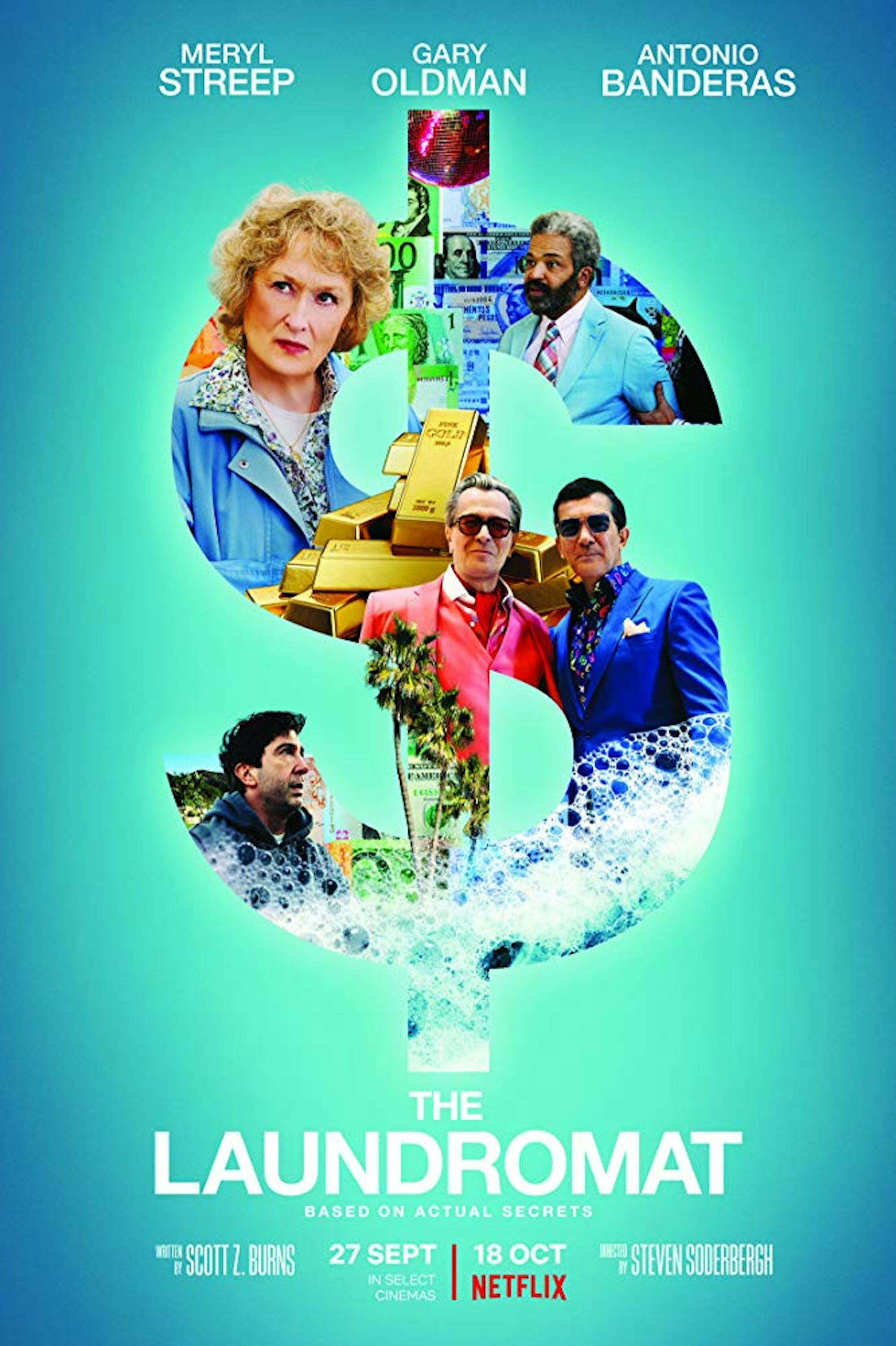Steven Soderbergh takes on a lot in his newest film "The Laundromat" (2019). Based on the real story of the Panama Papers scandal, the film tells of just how the law firm Mossack Fonseca & Co. came crashing down.
Soderbergh and frequent collaborative partner Scott Z. Burns touch on ideas such as corruption, shell companies and campaign finance reform. For a 96-minute run time, it can feel like a lot is thrown at you.
"The Laundromat" does have a lot going for it, though. Meryl Streep in a bucket hat,Antonio Banderas in a turtleneck — the stars, as is the case in most Soderbergh films, get to shine. The film tonally feels similar to "The Informant!" (2009), a previous collaboration between Burns and Soderbergh, with its dry humor rooted in cynicism and wit. This humor teeters between funny, insightful and on the nose, as does most of the film.
That's both what makes the film interesting, but also just miss the mark. The systemic problems that "The Laundromat" attempts to critique are important and relevant; sometimes it feels like this is handled in a way that is clever, but other times it feels like Soderbergh took the abridged version of these issues and scotch-taped them together.
Nothing makes this more clear than the stylistic similarities to "The Big Short" (2015). The film frequently breaks from the narrative so that our two narrators, played by Antonio Banderas and Gary Oldman, can explain a finance concept to us and why it is so evil. Just like Selena Gomez explained Synthetic CDO's while playing blackjack in "The Big Short," Gary Oldman and Antonio Banderas explain how shell companies are just a way for rich people to keep their wealth away from the government. This trend went from cute to patronizing quickly.
On a few occasions, our narrators are woven into the narrative where we'll see Banderas and Oldman present in a scene, and it just feels like breaking the fourth wall, in ways that we've seen done again and again, is an attempt to win us over with charm.
Scotch tape also describes the production of the film. Much of the veneer or magic of film is removed as you see that what appeared to be a plush beach is really just inside a set inside a movie studio. The film wants you to recognize that this is a movie trying to explain financial corruption, and it's unclear whether that is supposed to be clever or self-critical.
The film is split into chapters; the way each chapter is introduced and titled feels in the same vein as short, well-made explainer-type videos on YouTube.
And yet, it is these flaws that make the film more interesting in regards to Soderbergh's entire filmography. There's a reason it feels like the viewer can see the seams that sew together this film more than usual. Soderbergh, unlike many of his colleagues, does not stop working.
This is the second of three feature films being released this year that Soderbergh will have a large hand in producing.
First in February, Soderbergh released his iPhone-shot basketball movie, "High Flying Bird" (2019) on Netflix. "High-Flying Bird," like "The Laundromat," contained star powered performances, but in the end hit the mark a little more due to its level of creativity with camera movement and the manner in which it analyzed systemic injustice and power structures.
Upcoming is Amazon's "The Report" (2019), starring Adam Driver and Annette Benning as Senator Dianne Feinstein. While it is written and directed by Scott Z. Burns, Soderbergh is a producer for the film. Given Soderbergh's professional relationship with Burns, it would be surprising if he played no hand at all in the production of the film.
Take your favorite director — say, Quentin Tarantino or Paul Thomas Anderson — it’s typical that they take at least a year between projects, taking all the time they need to perfect each of their works. Soderbergh, on the other hand, is basically using the exact opposite approach, pushing out content as fast as he can in our content-saturated world.
Soderbergh sees that the media landscape has pushed the boundaries of film, including his own work. While none of these films are as perfectly crafted and neat as his colleagues' work, they're more frequently available, incredibly entertaining and engaging and rather consumable. "High-Flying Bird" and "The Laundromat" are both roughly 90 minutes.Soderbergh's work ethic deserves more respect than it currently holds.
While "The Laundromat" is not perfect, it represents Soderbergh as a filmmaker in this moment, and how his ability to adapt as a filmmaker is something to which auteurs everywhere should aspire.
Soderbergh takes swing with 'The Laundromat'

A promotional poster Steven Soderbergh latest film, 'The Laundromat,' is pictured.
Summary
Soderbergh's 'The Laundromat' cynical humor fails to make up for some of its clunkiness.
3.5 Stars





